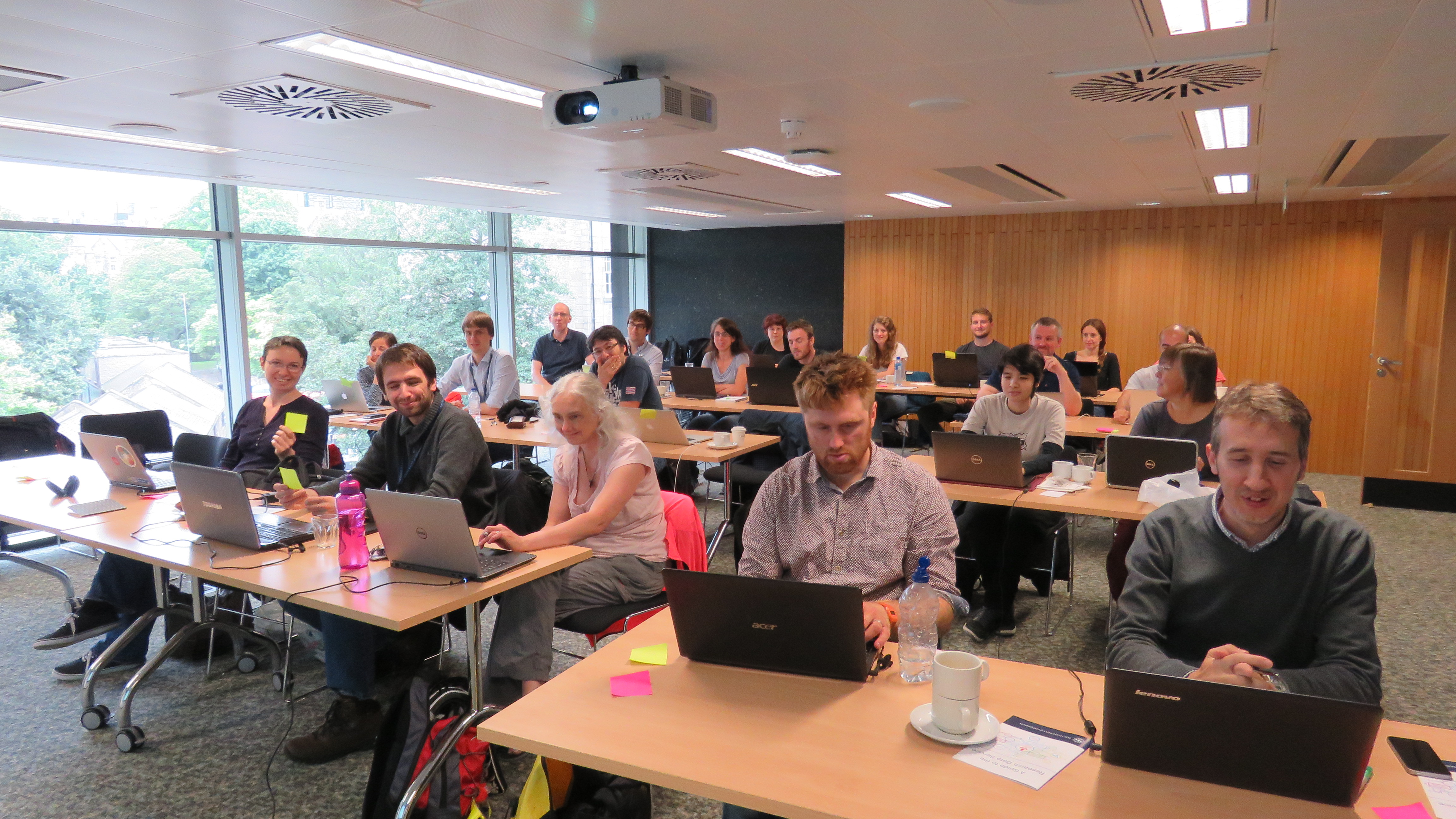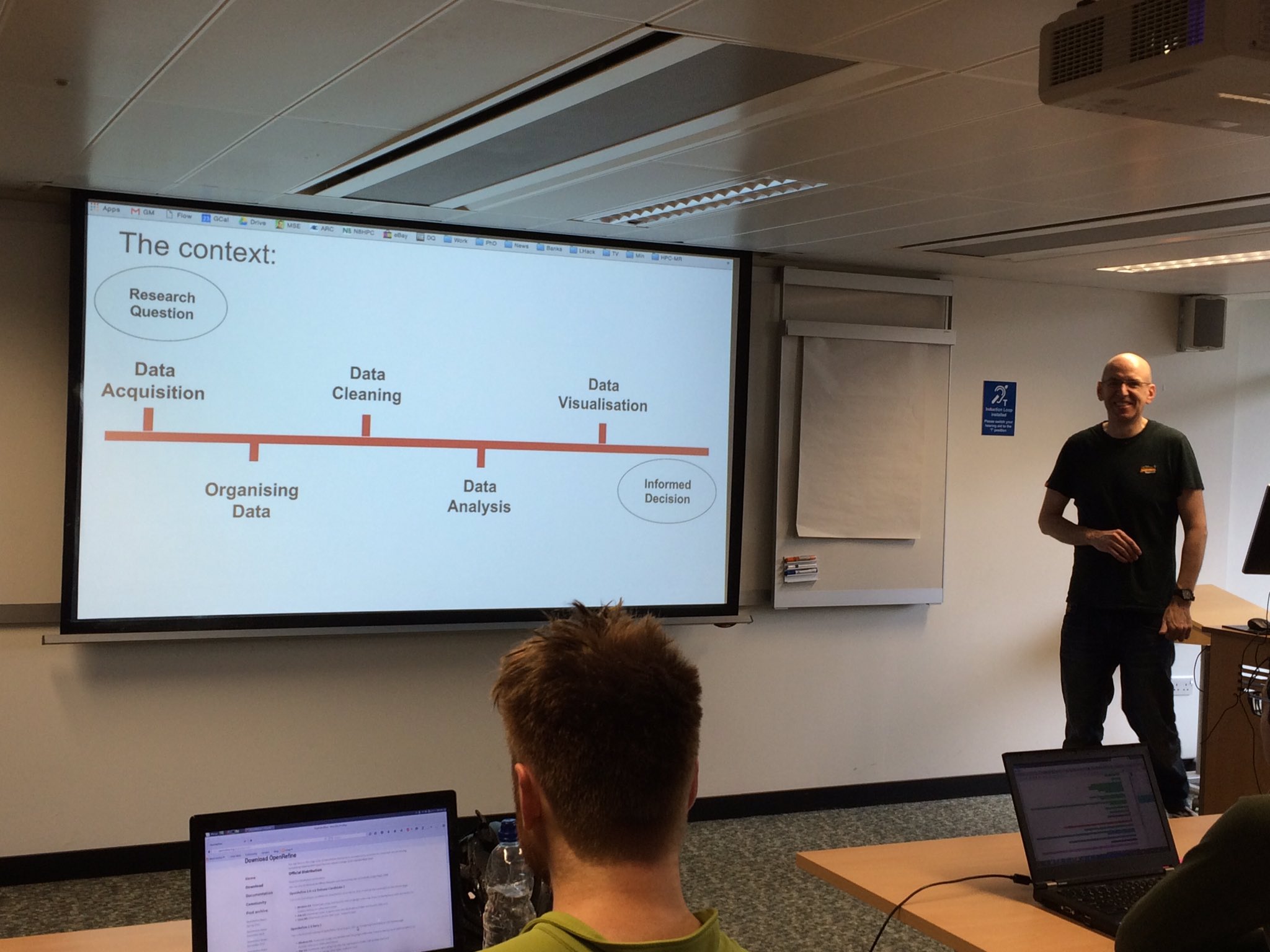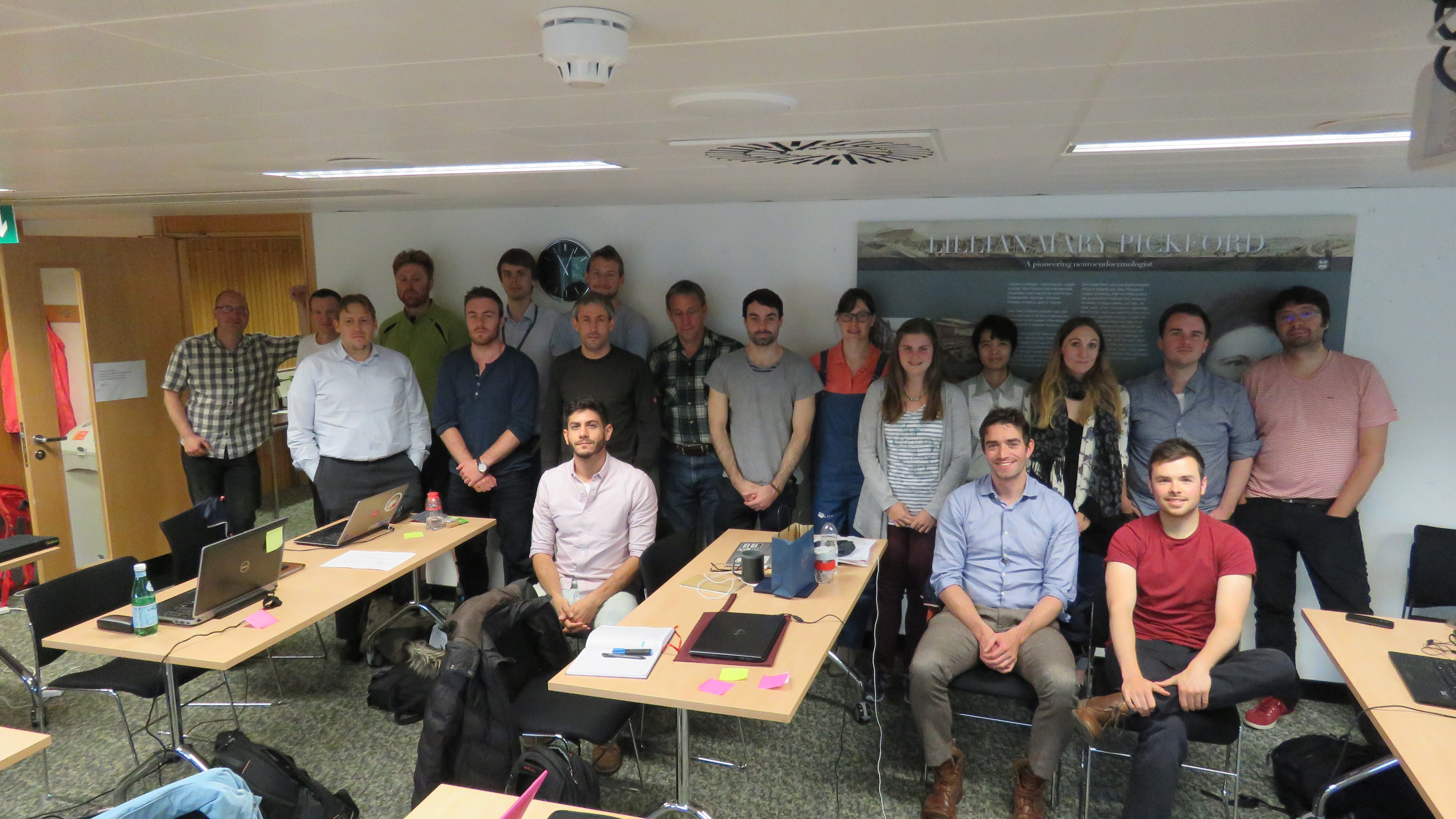This is guest post from Giacomo Peru and the EdCarp Committee (https://edcarp.github.io/committee/). Sections of this post were published previously on the EPCC blog.
The Edinburgh Carpentries (EdCarp) is a training initiative, which offers the Carpentries computing and data skills curriculum in Edinburgh. The workshops train researchers on fundamental skills needed for conducting efficient, open, and reproducible research. The EdCarp team comprises staff and student volunteers from across disciplines, academic units, and career stages.
Since 2018, EdCarp has organised 25 workshops across the academic institution, training over 300 staff and students in data cleaning, manipulation, visualisation and version control methods using tools such as R, python, Unix shell, Git, SQL and OpenRefine. Courses are free to participants and are oversubscribed very quickly. We are now rolling out our 2020 schedule and announcing workshops.
EdCarp are working to establish collaborations with other organisations, external and internal to the university: the Scottish Funding Council, the Institute for Academic Development and the Data Driven Innovation programme.
EdCarp can work with your academic unit or doctoral training program to help promote the fundamental data skills that your colleagues need.
A crucial aspect of EdCarp and their training model is the participation and voluntary commitment of the community, where trainees go to become helpers, helpers to instructors and so on. EdCarp are always looking for new people willing to help, in any capacity; please sign up here if you would like to be kept updated and/or get involved: https://eepurl.com/gl4MsX.




